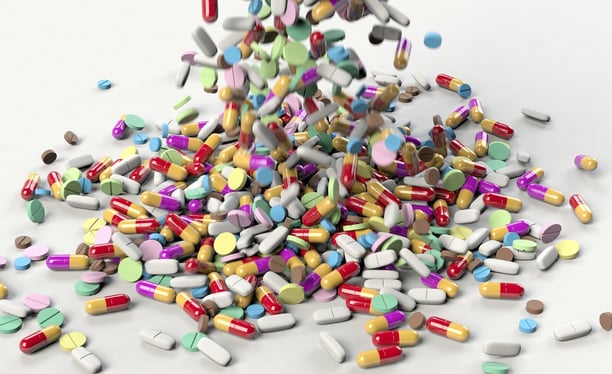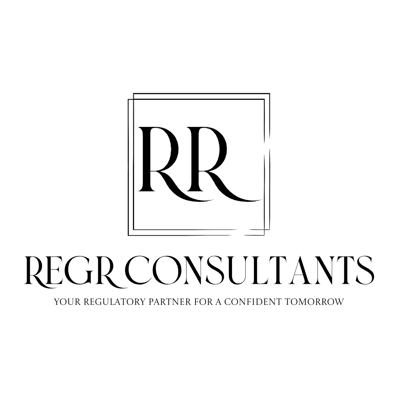Pharmaceutical Industry




The Federal Food Drug and Cosmetic Act (FD&C Act) and FDA regulations define the term drug, in part, by reference to its intended use, as “articles intended for use in the diagnosis, cure, mitigation, treatment, or prevention of disease” and “articles (other than food) intended to affect the structure or any function of the body of man or other animals.”
Is my product a drug or cosmetic or both?
RegR Consultants can assist you to determine the product classification of your device as a drug or cosmetic or both. Whether a product is a cosmetic or a drug under the law is determined by a product's intended use. Different laws and regulations apply to each type of product. Firms sometimes violate the law by marketing a cosmetic with a drug claim or by marketing a drug as if it were a cosmetic, without adhering to requirements for drugs.
Can my product be both a cosmetic and drug?
Some products meet the definitions of both cosmetics and drugs. This may happen when a product has two intended uses. For example, a shampoo is a cosmetic because its intended use is to cleanse the hair. An antidandruff treatment is a drug because its intended use is to treat dandruff. Consequently, an antidandruff shampoo is both a cosmetic and a drug.
What drug requirements are verified at the time of importation?
At the time of importation, the major FDA requirements that needs compliance are as follows:
Registration
Listing
US FDA Drug Registration and Listing
Foreign drug establishments whose drugs are imported or offered for import into the United States are required to register with FDA and submit listing information for their drugs intended for commercial distribution in the United States. Additionally, if the foreign manufacturer has not previously registered, they are required to register with the FDA within 5 days after submitting a drug application, biological license application, or medicated feed mill license application. These regulations also require importers to identify a U.S. Agent. Registration and listing must be completed electronically unless a waiver from the electronic submission requirement is obtained.
Blanket No Change Certification for Product Listing Data
Within the new regulations adopted in 2016, there is now an annual requirement to update your listings or certify that no changes have occurred for products that were not initially listed or updated during the past calendar year. Any product listing that is required to be certified but not certified, may be considered inactive and removed from the NDC Directory and other publications of Listing data. RegR Consultants will keep your listings updated and make sure that you are in compliance with the FDA requirement.
What is a labeler code? Do I need a labeler code?
Each listed drug product is assigned a unique 10-digit, 3-segment number known as an NDC number. The first segment of the NDC number is known as labeler code. RegR Consultants can help you to determine if your firm needs an FDA labeler code or not? If you need a labeler code, we will submit an FDA application on your behalf and successfully obtain a labeler code for your firm.
Types of US FDA Drug Applications
FDA requires that all drugs in the United States be shown to be both safe and effective prior to marketing.
NDA (New Drug Application)
Every new drug must have an approved NDA before becoming available for sale in the United States. For more information, visit US FDA NDA page.
ANDA (Abbreviated New Drug Application)
The ANDA contains data which provides for the review and ultimate approval of a generic drug product. For more information, visit US FDA ANDA page.
IND (Investigational New Drug)
FDA requires that certain drugs be the subject of an approved marketing application (NDA/ANDA) before it is offered for importation into the United States. For more information, visit US FDA IND page.
US FDA Drug Labeling Requirements
All drug products offered for importation into the United States are subject to labeling requirements. FDA may review drug labeling at the time the product is offered for import to verify compliance with the regulations. Specific drug labeling requirements depend on the type of drug product. Over–the-counter drugs, prescription drugs, and drugs imported for drug efficacy studies are subject to specific labeling requirements in addition to the general drug label provisions. RegR Consultants can review your product drug labeling to check for compliance with the US FDA labeling requirements.
CARES Act Drug Amount Reporting
The CARES Act amended the FD&C Act to require that each person (including repackers and relabelers) who registers with FDA under section 510 of the FD&C Act with regard to a human or animal drug must report annually to FDA the amount of each listed drug that was manufactured, prepared, propagated, compounded, or processed by such person for commercial distribution.
US FDA Generic Drug Facility Self-Identification
The Generic Drug User Fee Amendments of 2012 (GDUFA) requires that human generic drug facilities, and certain sites and organizations identified in a generic drug submission, provide identification information annually to FDA. The generic firms need to self-identify every year between May 1st to June 1st
Certificate of US FDA Registration and Listings
The firms registered with the FDA are often requested by their clients or customers or suppliers to verify their FDA registration. RegR Consultants will provide you with the certificate of registration and listings
Consulting
Expert guidance for your Regulatory Requirements
Email Us:
© 2024. All rights reserved.
